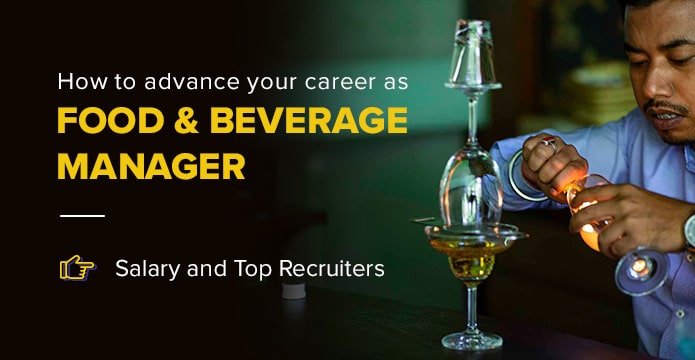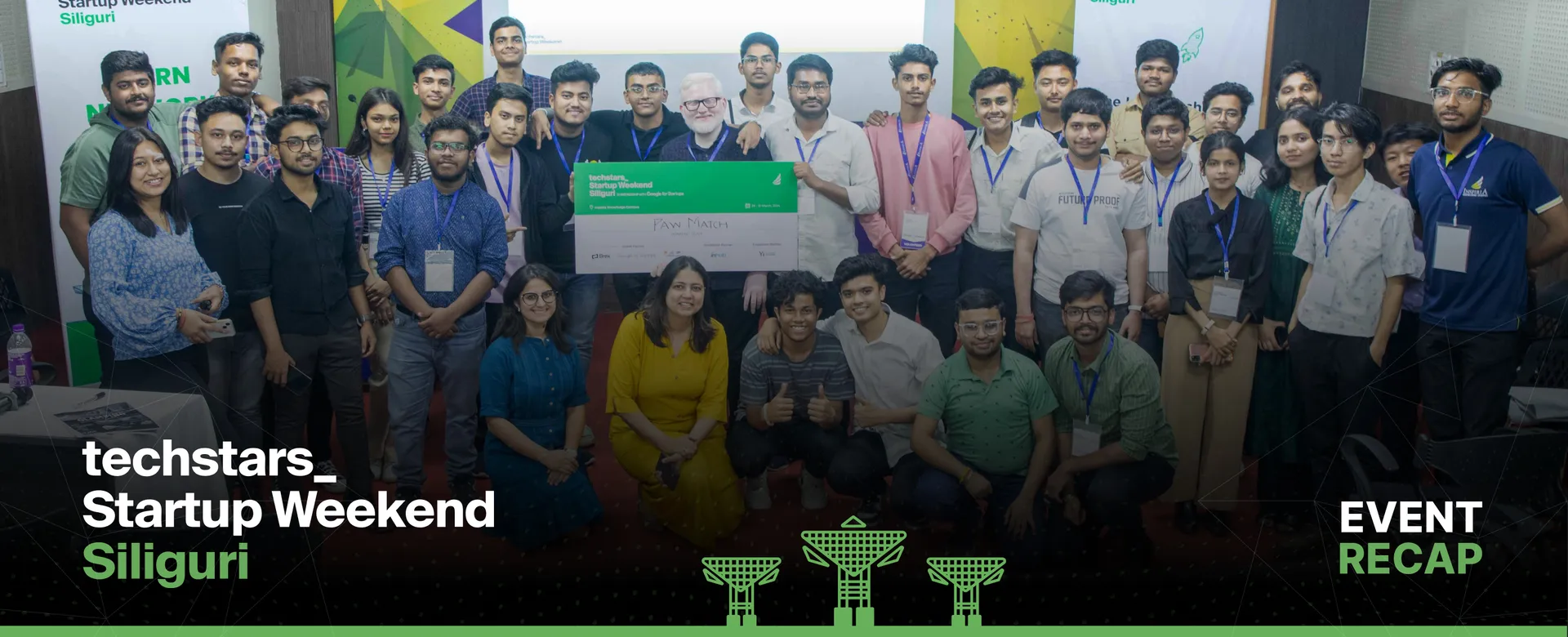Who is a Food and Beverage Manager
Every major restaurant or eating establishment requires a person to inspect the food and beverages being served. The Food and Beverage manager’s main responsibility is to ensure that the food and drinks served are of the highest quality. Their roles and responsibilities also include managing the restaurant, designing menus in collaboration with the chefs, handling customer complaints, and adhering to food and safety regulations. As the name implies, they manage the restaurant where they work by assigning jobs and roles, preparing reports on the restaurant’s performance, and so on.
While the majority of food and beverage managers work for large corporations and restaurants, some also own their own businesses. In a nutshell, a food and beverage manager is a professional who is in charge of both the culinary and business aspects of a restaurant. A food and beverage manager is required in almost every food and beverage establishment because they are responsible for the smooth operation of a restaurant. As one might expect, this means that food and beverage managers have a plethora of options. Food and beverage managers have a bright future, whether you’re just starting out in management, finishing up hospitality management school, or are a seasoned manager.
They also manage the inventory and the pantry to ensure that food supplies are not depleted. Food and beverage managers gently address customers’ concerns about the food and other services provided. The manager’s responsibilities include making sure the restaurant doesn’t run out of food and properly discarding rotten or outdated items. These professionals are required to follow health and safety regulations as well as they are in charge of the company’s policies and the employees. They must also prepare regular performance reports to accurately measure the restaurant’s success.
One of the best ways to advance your career as a food and beverage manager is to obtain a relevant degree, such as a Bachelor’s degree in Hotel Management or Food and Beverage, Hospitality Management. A three-year degree programme provides you with all of the necessary knowledge and skills, as well as training. Aside from a bachelor’s degree, diploma courses in hotel management and hospitality management are also available. This position necessitates a culinary degree as well as a thorough understanding of the food industry. The food and beverage manager should be a natural leader with strong organisational skills. You should provide excellent customer service. It is also necessary to be a good team player and to have excellent communication skills at all levels.
Educational Requirements for Food and Beverage Managers
A candidate wishing to work as a food and beverage manager should have a diploma in hospitality management at the very least. A bachelor’s degree in hospitality management is the most commonly asked educational qualification. A Master’s degree in hospitality management is even better. Aside from degrees and diplomas, it is preferable to have specific training certificates.
B.Sc. in Hospitality and Hotel Management: The B.Sc. in Hospitality and Hotel Management is a three-year degree programme that provides students with a thorough understanding and knowledge of the hospitality industry’s operations. This is accomplished through in-depth lessons on the fundamentals of hospitality management, various principles, and various practical lessons. Depending on the University and the institution, the course has different names. It’s a course that teaches students everything they need to know about hospitality management. Over the course of three years, they are made industry ready through extensive skill training and development.
In addition to learning about the hotel and hospitality industry, hospitality management students are nurtured and educated in the development of their personalities. By instilling entrepreneurial skills in students, the course also teaches them how to be self-employed service providers in the sector. As an aspiring food and beverage manager, one’s first stop should be this degree programme, which provides a student with all of the necessary knowledge related to food and beverage management as well as the service aspect through both theoretical and practical lessons. This course teaches them how to work in the food and beverage industry.
Eligibility: This course is open to candidates who have completed their 12th grade from a recognised board with a minimum aggregate of 50%. However, because certain universities and institutions have specific requirements, eligibility criteria may differ from university to university and college to college.
Certification and Internship: After completing a bachelor’s degree in hotel and hospitality management, one can pursue certification and internship opportunities. Internships are the most fundamental and are typically included in a three-year Bachelor’s degree programme. It is the first true introduction to the industry, in which one works for a company for approximately six months. Following the completion of the internship, one can pursue additional training and certifications, which will help to strengthen one’s resume as well as skills. These certification courses are typically three to six months in length.
Skills Required
A food and beverage manager should not only be informed and an expert in his field, but he or she also needs to possess specific abilities, the most significant of which are communication, leadership, and time management. A good mastery of the languages he speaks, as well as exceptional communication abilities, are required of a food and beverage manager. As someone who must communicate with others on a regular basis, effective communication skills are essential. A F&B manager must do it all, from issuing directions to communicating with the team/staff to talking with customers and business leaders.
So it’s only natural that they’re the best at speaking, writing, and even conducting themselves at work. Another important skill for a food and beverage manager to have is organisational abilities. Because their primary work and responsibility is to oversee the proper operation of a restaurant, a F&B manager must be organised.
Communication Skills: It is a fundamental and crucial talent for a food and beverage manager to possess. As a food and beverage manager, you are constantly in contact with your consumers. They must communicate with their customers as part of their employment, thus solid communication skills are essential. This does not necessarily imply that they should be skilled at speaking; rather, they should be active listeners, be friendly, and make the client feel at ease; they should have clarity of thought as well as speech; they should be confident in their statements; and they should exhibit empathy. An excellent communicator is also confident, which enhances their personality even more.
Leadership Skills: A restaurant or other food-serving establishment’s head is a food and beverage manager. They are responsible for a large group of people who are separated into teams. These specialists serve as the ship’s captain, steering and sailing the vessel through the daily waves that batter the restaurant. As the leader with so many obligations on their shoulders, they must be decisive in the sense that they must be able to make quick judgments, solve problems swiftly, and act on the basis of whatever information is available to them. A successful leader should also be able to maintain solid connections with the team, i.e., keep the team together and make each team member feel valued for their contribution to the team. A team needs a dependable leader in an industry as busy as the food and beverage sector, thus it’s critical that a Food and Beverage manager is dependable and capable of training and mentoring other team members.
Organizational Skills: Another essential skill for a food and beverage manager is the ability to organise. Aside from the cuisine, the most important aspect of running a restaurant is how you manage things, whether it’s the team, workflow, service, or just objects. These organisational skills are essential for a successful food and beverage manager because they allow you to use your resources efficiently and effectively, allowing you to manage your time, energy, and workplace while still fulfilling all of your assigned obligations. Keeping a clean work environment, meeting deadlines, and communicating effectively with coworkers are all examples of organisational skills. Other skills that fall under organisational skills include time management, goal setting, self motivation, team motivation, strategic planning, and other minor details.
Roles and Responsibilities of a Food and Beverage Manager
Overseeing Operations: One of the most basic and important responsibilities of a Food and Beverage Manager is to oversee the operations of a restaurant. In a nutshell, they plan, direct, and analyse the food and beverage operations and service of the restaurant. They are aware of every operation that takes place in the restaurant and keep an eye on even the smallest details of the business. This includes the employee, their performance, their daily responsibilities, order and delivery schedules, inventory status, kitchen schedules, and a variety of other responsibilities.
Management of Staff: The food and beverage manager is also in charge of staff management, which includes the hiring and firing of restaurant employees. It is their responsibility to screen and hire new personnel in accordance with the company’s needs. Not only that, but they are also in charge of the employee’s training and development, which entails arranging for extensive training sessions. Most of the time, these training sessions are scheduled not only for new employees, but also for those who have been working for some time. It’s done in light of new equipment, processes, and policies being implemented. Regular training also helps to keep everything in order by refreshing the employees’ memories. They also keep track of each employee’s performance and compile reports on it, which comes in helpful when it comes time to provide raises and appraisals. The restaurant’s payroll is also managed by the food and beverage manager.
Supervise Food Preparation and Service: A food and beverage manager is also responsible for overseeing the entire food preparation and service process. They are in charge of everything, from bringing in the ingredients to preparing the main courses to delivering the meal to the diners’ tables. Food and Beverage Managers are also involved in the menu creation process. They collaborate with the chief chef to create new menus that reflect the restaurant’s style while also taking audience demographics, produce availability, and other factors into account. The food and beverage manager ensures that the kitchen runs smoothly and that there are no food preparation time delays. They also ensure that quality food is prepared, presented and served.
Managing Inventory: It is the food and beverage manager’s responsibility to keep track of the restaurant’s inventory. They make certain that the restaurant is well-stocked with supplies and equipment. These managers also organise the necessary supplies while ensuring that the kitchen and inventory aren’t cluttered with unnecessary items and supplies. They are in constant communication with the vendors to ensure that they have a variety of supply options available even if someone runs out of stock. It is the food and beverage manager’s responsibility to ensure that there are no expired items in the inventory. They also supervise the operation of kitchen equipment, ensuring that all of the kitchen’s equipment is in good working order and that any broken items are repaired as soon as possible. Furthermore, they monitor the quality of each food supply, as well as the supply for the bar, as well as the kitchen equipment and crockery used.
Maintenance of Food Safety Regulations: One of the most important aspects of running a food and beverage establishment is food safety. Any major issue or complaint in that department can put the restaurant in serious jeopardy. As a result, it is the responsibility of the food and beverage manager to ensure that the government’s food safety rules are strictly observed.
Budgeting: Food and beverage managers are also in charge of the restaurant’s finances, which is an important component of their job. Following the restaurant owner’s allocation of a budget, it is the role of the food and beverage manager to allocate the budget to various departments inside the restaurant. They arrange the budget into categories based on the function, such as supplies/vendors, tableware, restaurant maintenance, equipment maintenance, and employee payroll.
Customer Service: You must maintain constant contact with your customers as a food and beverage manager. They are responsible for ensuring that the restaurant’s customers are satisfied with the service they receive. Customers value and pay for service in addition to food, so it is critical that the restaurant provide excellent service, which is primarily the responsibility of the food and beverage manager. From greeting customers to finding them the best and most desired seating, serving food and beverages on time, and not making them wait for anything, including the bill, customer service should be smooth and top-notch.
Scope for Food and Beverage Manager
A Food and Beverage Manager is required to work in every restaurant or food and beverage establishment. As a result, the scope of a food and beverage manager’s job expands. They are applicable to a wide range of establishments, including hotels, restaurants, casinos, bars and pubs, cruise ships, catering services, resorts, food outlets and franchises, and so on.
Salary
The average base salary of a food and beverage manager in India is ₹579,000, according to the pay data company Payscale.
The national average salary for a Food and Beverage Manager in India is ₹60,207 per month, according to the employee review website Glassdoor.
It is important to note that the payscale/salary of a food and beverage manager may vary depending on the organisation and the applicant’s experience.
Top Recruiters
● Hyatt
● Marriott International
● Ikea
● Fairmont Hotels & Resorts
● Mayfair Hotels & Resorts
● Club Mahindra
● Nestle
● McDonald’s
● KFC
● Domino’s
● Pizza hut
● Subway
● Westin
● Hardrock









